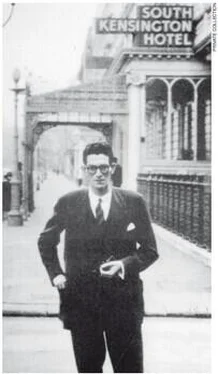Ben Macintyre - A Spy Among Friends
Здесь есть возможность читать онлайн «Ben Macintyre - A Spy Among Friends» весь текст электронной книги совершенно бесплатно (целиком полную версию без сокращений). В некоторых случаях можно слушать аудио, скачать через торрент в формате fb2 и присутствует краткое содержание. Год выпуска: 2014, ISBN: 2014, Издательство: Bloomsbury Publishing, Жанр: Старинная литература, на английском языке. Описание произведения, (предисловие) а так же отзывы посетителей доступны на портале библиотеки ЛибКат.
- Название:A Spy Among Friends
- Автор:
- Издательство:Bloomsbury Publishing
- Жанр:
- Год:2014
- ISBN:9781408851746
- Рейтинг книги:5 / 5. Голосов: 1
-
Избранное:Добавить в избранное
- Отзывы:
-
Ваша оценка:
- 100
- 1
- 2
- 3
- 4
- 5
A Spy Among Friends: краткое содержание, описание и аннотация
Предлагаем к чтению аннотацию, описание, краткое содержание или предисловие (зависит от того, что написал сам автор книги «A Spy Among Friends»). Если вы не нашли необходимую информацию о книге — напишите в комментариях, мы постараемся отыскать её.
A Spy Among Friends — читать онлайн бесплатно полную книгу (весь текст) целиком
Ниже представлен текст книги, разбитый по страницам. Система сохранения места последней прочитанной страницы, позволяет с удобством читать онлайн бесплатно книгу «A Spy Among Friends», без необходимости каждый раз заново искать на чём Вы остановились. Поставьте закладку, и сможете в любой момент перейти на страницу, на которой закончили чтение.
Интервал:
Закладка:
The night before Burgess’s departure, the two spies dined in a Chinese restaurant in downtown Washington, selected because it had individual booths with piped music, to stymie any eavesdroppers. They rehearsed the plan: Burgess would make contact with the Soviets in London, then visit Maclean at his office and, while making innocuous conversation, hand over a sheet of paper setting the time and place for a rendezvous. Burgess had not yet been formally fired, and there would be nothing suspicious in the newly returned information officer from Washington reporting to the head of the American desk. The Soviets would then arrange Maclean’s escape. ‘Don’t you go too,’ said Philby, only half-joking, as he dropped Burgess off at Union Station. Burgess, however, was congenitally incapable of doing what he was told.
Burgess arrived back in England on 7 May 1951, and immediately contacted Anthony Blunt, who got a message to Yuri Modin, the Soviet controller of the Cambridge ring. ‘There’s serious trouble,’ Blunt reported. ‘Guy Burgess has just arrived back in London. Homer’s about to be arrested . . . It’s only a question of days now, maybe hours . . . Donald’s now in such a state that I’m convinced he’ll break down the moment they arrest him.’ Modin informed Moscow, and received an immediate response: ‘We agree to your organising Maclean’s defection. We will receive him here and provide him with whatever he needs.’
A graduate of the Leningrad Naval Academy, Yuri Modin had, in his own estimation, ‘no predisposition to be a spy’. But he was very good at it. He had inherited the Cambridge network at a time when it was falling apart, yet he had handled Burgess’s drinking and Maclean’s volatility with tact and competence. Spiriting Maclean to Moscow, however, was by far the greatest challenge he had yet faced.
MI5’s surveillance unit, A4, was known as ‘The Watchers’. In 1951, it numbered about twenty men and three women. Most were former Special Branch police officers, selected for their sharp eyesight, good hearing, and average height (‘men who are too short . . . are just as conspicuous as tall men’, ruled the chief Watcher). They were expected to dress in trilby hats and raincoats, and communicated with each other by hand signals. They stood on street corners, watching, and trying to appear inconspicuous. They looked, in short, exactly like surveillance agents. Since the end of the war, A4 had kept watch on the Soviet intelligence residency in Kensington Palace Gardens, and the Soviets, in turn, had kept a close watch on them. Modin knew that the Watchers did not work in the evenings or over the weekends. He knew, too, that surveillance of Maclean did not extend beyond London, because MI5 feared that a man hanging around in a trilby might be a giveaway in the countryside. Maclean lived in Tatsfield in rural Kent, and commuted to and from London by train. The Watchers trailed after him during the day but, Modin observed, ‘at Victoria, MI5’s men saw the train out of the station, and then headed home like good little functionaries. There was no one at Tatsfield to take up the chase.’ Modin believed Maclean would be arrested on Monday 28 May. On Friday 25 May, the very day the Foreign Secretary gave formal approval for Maclean’s interrogation, the escape plan swung into action.
That evening, which happened to be Maclean’s thirty-eighth birthday, Burgess appeared at the Maclean home in Tatsfield with a rented car, packed bags and two round-trip tickets booked in false names for the Falaise , a pleasure boat leaving that night for St Malo in France. He had spent the previous day at his club, talking loudly about a road trip he planned to take to Scotland with a new boyfriend. Burgess had dinner with Donald and Melinda Maclean (who was party to the plan), and the two men set off for Southampton in a state of high excitement and unaccustomed sobriety. They arrived just minutes before the midnight sailing, parked the car askew on the dockside, and scrambled up the boat’s gangplank. One of the dockworkers shouted that the car door was still open; ‘Back on Monday!’ Burgess shouted back. He may have thought he was telling the truth.
Before Burgess left Washington, Philby had made him promise he would not flee with Maclean to Moscow. ‘Don’t go with him when he goes. If you do, that’ll be the end of me. Swear that you won’t.’ Modin, however, had insisted that Burgess must accompany Maclean. Burgess at first objected. He pointed out that he had no desire to defect and found the prospect of life in Moscow perfectly ghastly. But finally he had agreed, apparently on the understanding that he could steer Maclean to Moscow and then return and resume his life just as before. The Soviets had other plans: Burgess and Maclean were travelling on one-way tickets. As Modin wrote: ‘The Centre had concluded that we had not one, but two burnt-out agents on our hands. Burgess had lost most of his former value to us . . . Even if he retained his job, he could never again feed intelligence to the KGB as he had done before. He was finished.’ What the Soviets had failed to take properly into account was the knock-on impact the double defection would have on Kim Philby. Modin later acknowledged that allowing Burgess to leave with Maclean had been an error. In the spy world, nothing is supposed to occur by accident, but in this case, Modin’s explanation was probably true: ‘It just happened . . . intelligence services do silly things sometimes.’
The Falaise was popular with wealthy adulterers wanting to take their mistresses on a weekend cross-Channel jaunt. There were no passport controls, and few questions asked. In theory the ship cruised off the coast of France, but unofficially she always put in at St Malo for a few hours of French food and sightseeing. The ship docked at 11.45 the next morning. Burgess and Maclean left their luggage on board, filed down the gangplank with the other passengers, and then slipped away from the crowds. They caught a taxi to the station at Rennes, a train to Paris, and then another train to Berne in Switzerland, where Nicholas Elliott, wholly unaware of the presence of the two fugitives on his patch, was enjoying dinner at the Schweizerhof Hotel.
Elliott considered the hotel restaurant one of the finest in Europe, with particularly good foie gras. ‘I have never tasted better,’ Elliott insisted, ‘even in Strasbourg.’ The maître d’, Théo, was one of Elliott’s paid informants, and always managed to find him a table. Saturday night dinner at the Schweizerhof had become something of an Elliott tradition.
On the evening of 26 May, while Elliott was tucking into his foie gras, a taxi pulled up outside the Soviet embassy, less than a mile away. Elliott would have recognised both passengers. Burgess had been a frequent guest at the Harris parties, and he, Philby and Elliott had often dined together at Pruniers restaurant on Piccadilly. Burgess had once applied for a teaching post at Eton, but was turned down when Claude Elliott discovered how unsuitable he was. ‘It seems a pity the Foreign Office did not take the trouble to make a similar inquiry,’ Elliott later reflected ruefully. He had also met Maclean on several occasions.
A few hours later, Burgess and Maclean re-emerged from the Soviet embassy carrying fake passports in false names. They then took another train to Zurich, where they boarded a plane bound for Stockholm, with a stopover in Prague. At Prague airport, now safely behind the Iron Curtain, the two men walked out of the arrivals hall and were whisked into a waiting car.
On Monday morning, the Watchers watched in vain as the train from Tatsfield pulled into Victoria Station with no Maclean aboard. A little later, Melinda Maclean called the Foreign Office to report that her husband had left the house on Friday night with a man named ‘Roger Styles’, and she had not seen him since. The Foreign Office put a call through to MI5. Special Branch reported that a car, hired by Guy Burgess, had been abandoned at Southampton docks. A flush of dawning horror began to spread across the British government.
Читать дальшеИнтервал:
Закладка:
Похожие книги на «A Spy Among Friends»
Представляем Вашему вниманию похожие книги на «A Spy Among Friends» списком для выбора. Мы отобрали схожую по названию и смыслу литературу в надежде предоставить читателям больше вариантов отыскать новые, интересные, ещё непрочитанные произведения.
Обсуждение, отзывы о книге «A Spy Among Friends» и просто собственные мнения читателей. Оставьте ваши комментарии, напишите, что Вы думаете о произведении, его смысле или главных героях. Укажите что конкретно понравилось, а что нет, и почему Вы так считаете.












